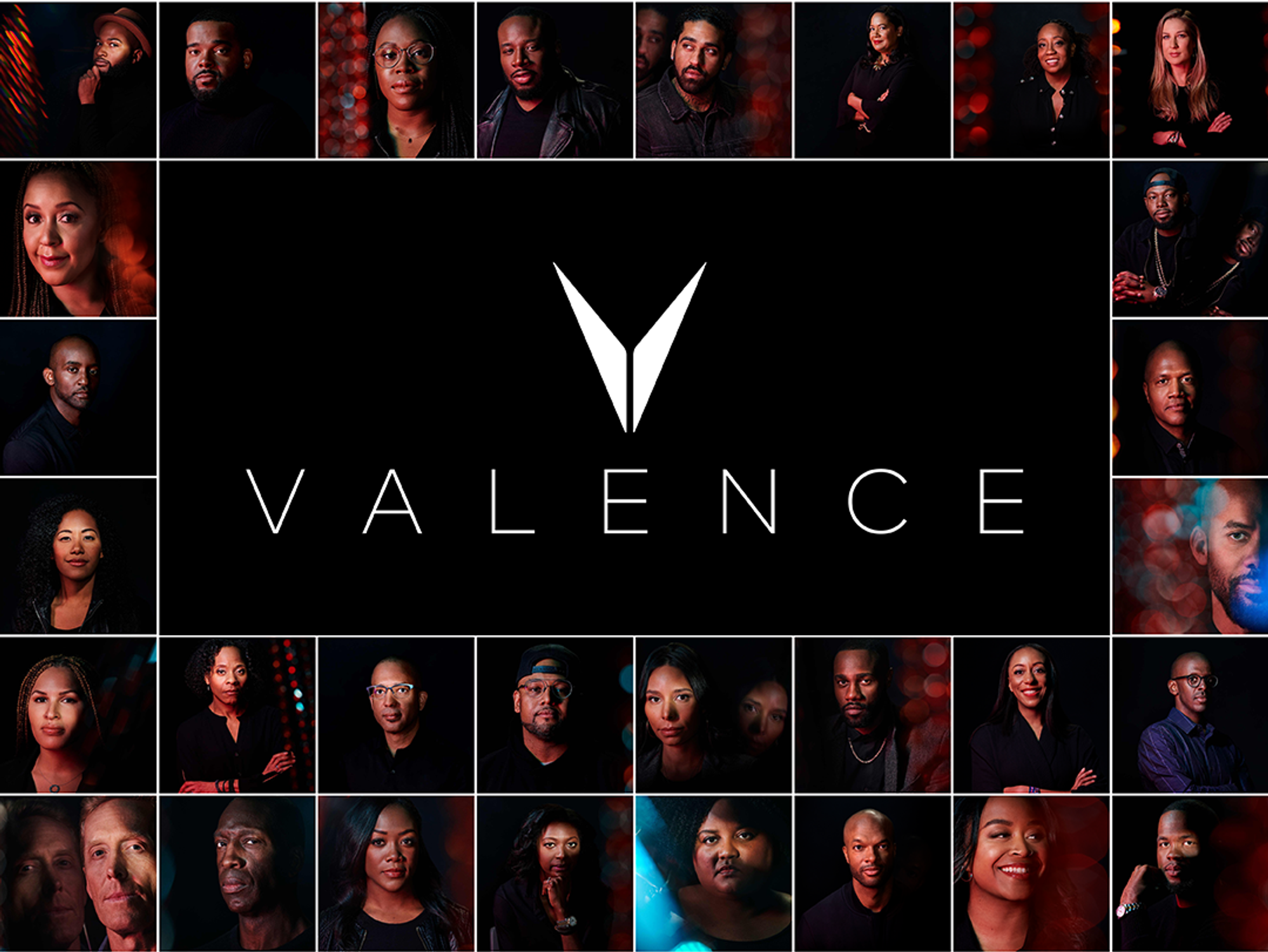Valence Announces Funding Network to Connect Black Founders
Ben Bergman is the newsroom's senior finance reporter. Previously he was a senior business reporter and host at KPCC, a senior producer at Gimlet Media, a producer at NPR's Morning Edition, and produced two investigative documentaries for KCET. He has been a frequent on-air contributor to business coverage on NPR and Marketplace and has written for The New York Times and Columbia Journalism Review. Ben was a 2017-2018 Knight-Bagehot Fellow in Economic and Business Journalism at Columbia Business School. In his free time, he enjoys skiing, playing poker, and cheering on The Seattle Seahawks.

Valence, a tech platform and professional network launched last year that connects Black founders, announced its inaugural funding network Thursday. The list includes investors at top firms including Sequoia Capital, Accel and Upfront Ventures.
"For years, Black entrepreneurs have been told that Silicon Valley is a meritocracy, but at the same time most haven't had access to the top networks, the warm introductions, and the mentorship that underpin lasting success in tech. Valence is upending this completely by bringing the top VCs to compete for the best Black entrepreneurs." said Valence co-founder and general partner at Upfront Ventures, Kobie Fuller. "We want to even the playing field with the goal of exponentially growing the number of Black-owned startups that get funded."
Only 4% of VC employees are black, according to a 2018 survey by the National Venture Capital Association, an industry trade group. Just 10% of VC-backed companies in Los Angeles are run by a person of color or a woman, according to PledgeLA.
However, the true numbers are likely much lower because those survey – like all others examining diversity — are self-reported.
Valence also announced that is has appointed tech and entertainment veteran Guy Primus as chief executive officer.
"Facilitating success in the innovation economy is key to Valence's mission. By creating the Valence Funding Network, we are eliminating one of the most formidable structural obstacles to success—the access to venture investors." said Primus.
Here are the inaugural funding members:
- 645 Ventures
- Nnamdi Okike
- Accel
- Rich Wong
- Base10
- Ade Ajao
- Bessemer
- Elliott Robinson
- Capital G
- Gene Frantz
- Collab Capital
- Jewel Burks
- Concrete Rose
- Sean Mendy
- Defy Partners
- Nabeel Hyatt
- Techsquare Labs
- Upfront
- Neil Sequiera
- Equal Ventures
- Richard Kerby
- First Round
- Josh Kopelman
- Forerunner
- Brian O'Malley
- Foundry
- Brad Feld
- General Catalyst
- Peter Boyce
- GGV
- Hans Tung
- Greylock
- Sarah Guo
- Jordan Fudge
- Spark Capital
- Rebecca Kaden
- High Alpha
- Scott Dorsey
- Lightspeed
- Mercedes Bent
- Lux
- Deena Shakir
- Outlander
- Paige Craig
- Precursor
- Charles Hudson
- Redpoint
- Annie Kadavy
- Sequoia
- Jess Lee
- Sinai Ventures
- Paul Judge
- Union Square
- Kobie Fuller
- valence - dot.LA ›
- Valence Funding Network Intends to Boost Black Startups - dot.LA ›
- Real Ways to Increase Diversity in the Workplace - dot.LA ›
- Navigating the Venture Capital World as a Black Person - dot.LA ›
- How Women Can Build Self-Confidence in a Virtual World - dot.LA ›
- Valence Gets $5.25M to Change How Black Professionals Meet - dot.LA ›
- Jordan Fudge Raised One of the Largest Funds in LA History - dot.LA ›
- How Upfront Ventures’ Kobie Fuller Focuses on Having a ‘Performance Mindset’ - dot.LA ›
- Valence Gets Acquired By Digital Banking Platform Greenwood - dot.LA ›
Ben Bergman is the newsroom's senior finance reporter. Previously he was a senior business reporter and host at KPCC, a senior producer at Gimlet Media, a producer at NPR's Morning Edition, and produced two investigative documentaries for KCET. He has been a frequent on-air contributor to business coverage on NPR and Marketplace and has written for The New York Times and Columbia Journalism Review. Ben was a 2017-2018 Knight-Bagehot Fellow in Economic and Business Journalism at Columbia Business School. In his free time, he enjoys skiing, playing poker, and cheering on The Seattle Seahawks.



 Image Source: JetZero
Image Source: JetZero
